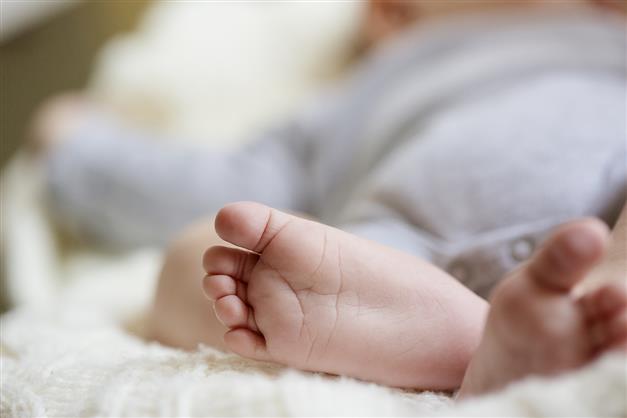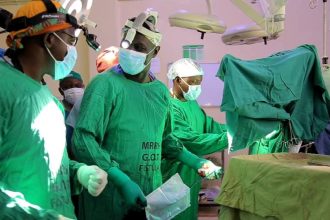A tragic incident occurred at Hukeseho Health Centre III in Buyinja Sub-county, Namayingo District, where a baby born with two heads died shortly after birth. This incident underscores the pressing need for increased support for health facilities nationwide.
Sarah Awino, a 19-year-old first-time mother, arrived at the health centre around 11 am on Monday, August 5, 2024. She complained of backache and lower abdominal pain, according to Jane Okanya, the midwife who attended her. Upon examination, Awino was found to be in mild labor pain. Laboratory tests revealed she had malaria, which was promptly treated. By Tuesday, Awino began experiencing labor pains.
At approximately 3 pm on Tuesday, Awino entered active labor. The midwife monitored her until 11 pm, when she delivered a baby girl weighing 2.5 kg. However, during delivery, a second head emerged, which had to be manually maneuvered out. The baby unfortunately died within five to ten minutes after birth. The second head was poorly formed and open, leading to a lack of oxygen and resuscitation attempts.
Okanya noted that Awino had been attending antenatal care but missed a crucial scan on July 30 due to financial difficulties. Despite recommendations to get the scan, Awino could not afford it. Okanya emphasized the need for more government support to offer essential services such as ultrasounds, which can detect abnormalities early and guide expectant mothers accordingly.
Fred Wandera, the area councilor for Lwangosia Parish in Buyinja Sub-county, described the situation as extraordinary and previously only heard of. The community was shocked, with many locals visiting the health centre, though most were not allowed access or to take photos.
Awino’s husband, Ogello Wabwire, a 24-year-old boda boda rider, expressed his deep shock and grief. The baby has since been buried.
Dr. Tenywa Emmanuel, a pediatrician at Nalufenya Hospital in Jinja City, described such cases as rare and highlighted the importance of detailed antenatal history. He suggested that factors like medication, substance use, or genetic abnormalities could contribute to such conditions. Known as dicephalic parapagus, this rare condition involves two heads on one torso and is sometimes referred to in popular media as “two-headed babies.”




















